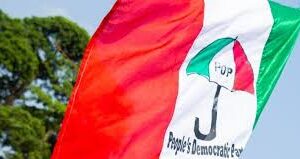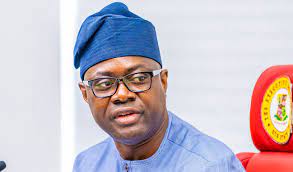EZREL TABIOWO draws a middle ground which captures the positions of President Jonathan, the northern senators and the military on effort at ridding Nigeria of insurgency
Validating northern lawmakers
Last week’s move by President Goodluck Jonathank to seek the approval of the Senate for a $1 billion (USD) loan request to tackle the current insurgency may have validated the calls by northern senators. The lawmakers have persistently suggested the beefing up of the nation’s military might as the only way out of the security challenge as against further extension of emergency rule in the three north east states of Adamawa, Borno and Yobe.
The northern senators had on May 14, 2014 rejected the proposed move by President Jonathan to extend the emergency rule in the affected states, following a written request received by the Senate for an approval.
Jonathan, who made the request through a letter to the Senate President, David Mark, and read on the floor of the Senate by the Deputy Senate President, Ike Ekweremadu, said his request was based on clear indications suggesting that terrorism was yet to abate in the affected states.
Case for better funding
Northern senators who were opposed to further extension of emergency rule immediately convened a meeting Northern Senators Forum(NSF) which held for three hours behind closed door. Chairman of the form, Senator Umaru Dahiru, while briefing journalists after the meeting, disclosed that an agreement was reached by members to vote against an extension of emergency rule in the three states. They argued that that was not the best option to combating the activities of the Boko Haram group which has left thousands dead and also crippled the economy of the affected areas.
He said, “Our meeting this afternoon discussed basically, the issue of emergency rule in Adamawa, Borno and Yobe states. Everybody in attendance made contributions and a lot was said.
“The majority position is basically that we are not going with the state of emergency. That is our categorical position because we are not convinced that it is only the issue of emergency rule that could make the security personnel achieve success in the area.
“We believe a lot of things ought to be addressed in order to conquer the issue of insurgency. So, our own position is that we are not going to support extension of the emergency rule in the area.
“We are going to engage the three governors in the affected states; we want to know what went wrong to be able to come up with better ways to tackle the crisis. However, the government must work for the benefit of its citizens.
“The leadership of the affected states and our forum here are saying no to emergency rule.”
“The constitution requires two-third majority in terms of voting. Of course, we are going to vote on the issue. If we can out-number them during the voting, fine; but of course, our position is that we are going to vote against it.”
Although the president’s request was however not formally discussed by the upper chamber, and subsequently unanimously approved, a lawmaker from Yobe and Secretary, Northern Senators Forum(NSF), Senator Ahmed Lawan, kicked against the request, arguing that effective funding should be the best alternative.
He said, “The state of emergency had been operated for 12 months now and will end on the 19th (yesterday) of this month. I think that should be the end. That is not to say that the military operation in the North east should cease. Instead, the federal government should deploy more military personnel and modern equipment to the affected states.
“What is crucial, essential and imperative, is not the state of emergency but the enablement of the military especially those in the battle front to have state-of-the-art technology and weapons.”
“The government does not need to declare another state of emergency before they continue. They are already there. The obsolete arms and ammunitions, should be withdrawn from them and be replaced with modern ones.”
“The National Assembly has always expressed willingness to support further funding for the military operation. The Senate President, David Mark, who spoke on our behalf last week, told President Goodluck Jonathan that the Senate was prepared to approve supplementary budget to further equip the military and boost the morale of the soldiers.
“Therefore I am completely opposed to the extension of the state of emergency in Adamawa, Borno and Yobe but I support further funding for the military operation in the area,” Lawan further posited.
Loan request
And in realisation of this , the president sought approval for loan facility to effectively equip the military. This was contained in a letter addressed to the Senate President who read same on the floor during plenary.
Jonathan explained that the requested amount will be channelled towards upgrading the military equipment of the Armed Forces and also to enable the Nigerian government to partner with other governments in a bid to tackle insurgence in the country.
The letter dated July 15 reads: “You are no doubt cognisant of the ongoing and serious security challenges which the nation is facing, as typified by the Boko-Haram terrorist threat.
“I would like to bring to your attention the urgent need to upgrade the equipment, training and logistic of our Armed Forces and Security services to enable them more forcefully confront this serious threat.
“For this reason, I seek the concurrence of the National Assembly for external borrowing of not more than $1 billion including government to government arrangement for this upgrade.
“While counting on the steadfast support of the distinguish members of the Senate as always, please accept, distinguished senate president, the assurances of my highest consideration.”
Military raises alarm
Authorities of the Nigerian Army have repeatedly raised alarm over the negative impact of inadequate funding for military operations currently going on in the North-East in the fight against the insurgent activities of Boko Haram.
Advocating for urgent steps to be taken by the federal government towards addressing the problem confronting military operations in the country, Chief of Accounts and Budget of the Nigerian Army, Major-General Abdullah Muraina and the Chief of Army Staff, Lt General Kenneth Minimah who spoke during the opening ceremony of the Nigeria Army Finance Corps Warrant Officers/Senior Non-Commissioned Officers Training Week, in May, 2014 at Jaji, Kaduna State, said ethno-religious crisis and terrorism had left serious financial demand on the Nigeria Army.
Muraina said: “Apart from the limitations of the envelope system, the Nigeria Army is enmeshed in the bureaucratic bottleneck for funding approvals for military operations.
“Currently, budgetary allocation for the military is inadequate to meet the contemporary security challenges and also cater for the welfare of the Nigerian Army. This calls for a review as the increasing speed at which the effects of conflict appear in the operational environment will continue to challenge military commanders”.
Consequently, the army chief said: “It is our humble appeal that government could evolve other means of funding and supporting military operations other than the normal budgetary allocation.
“Such means include, but is not limited to strategic co-operation and liaison with other civil industries for the production of uniforms and other equipment”.
He suggested that, “a special operations fund could be included in the defence budget and placed under the control of the Chief of Army Staff for immediate disbursement to the required operation areas”, adding that “our focus is to provide financial management support to the Nigerian Army across the full spectrum of operations during this period of security challenges”.
Explaining the magnitude of the problem, the CAB said: “This year, N4.8billion was allocated for capital projects for the Nigerian Army. Of this amount, because of the security challenges, the army decided to buy ballistic helmets and fragmented jackets (2 items) for 20, 000 soldiers, at a cost of $1500, it will amount to about N3billion. Meanwhile, about nine items are needed for the soldiers”.
The COAS, on his part said: “No doubt, you are aware of the increasing wave of socio-political and ethno-religious crisis threatening the nation’s security lately. This has assumed a higher dimension, witnessing spate of bombings and attacks on vulnerable points and other strategic areas of interest to the country. This has left serious demands on the Nigeria Army resources.
“We also know that funding is fundamental to containing security challenges. Success in this pursuit, therefore calls for prudent and efficient management and application of funds. I envision an Army that will effectively manage its available resources to be able to meet contemporary challenges”, he said.
Over sighting military spending
Despite the allocation of nearly a third of the federal budget to Security and Defense, a figure estimated and placed at around $6 billion annually, the military still complains about insufficient funds to tackle the security problems faced by the country.
Security experts around the globe have attributed the insignificant successes recorded in fighting Boko Haram in Nigeria to the high level of corruption which thrives among the country’s security agencies and the military.
Sources have on several occasions disclosed that the issue of poor funding which the military laments about arises due to the massive diversion of monies from the actual purpose for which same was budgeted and intended for.
Also, a huge chunk of what is budgeted and appropriated by the National Assembly for security is gulped up by salaries and allowances, leaving next to nothing for the upgrade of military facilities, equipment, and training of personnel.
The development, therefore, calls for a thorough oversight of the various security agencies and the military by the National Assembly committees on Defence and Intelligence.
The committees of both the House of Representatives and Senate must begin to take seriously their oversight duties towards ensuring that budgetary allocations are accounted for if the country must win the fight against insurgency.
Also, it behoves on the Senator Mohammed Magoro led committee in the Senate to ensure that the President’s $1 billion USD loan request is judiciously used for the purpose for which it was obtained, and not diverted into the pockets of a few individuals through non-existent items and schemes that fail too address the nation’s pressing security problems.
While the fate of Nigerians yet again hangs on the balance over the rising spate of insurgency in the country, which has claimed only the lives of the innocent, the National Assembly must tread cautiously by ensuring it carries out legislative actions to ensure compliance in teh spending pattern of the military and other security agencies, else they will take the blame for whatever failure that may arise there from, as this could be regarded as complicity.



